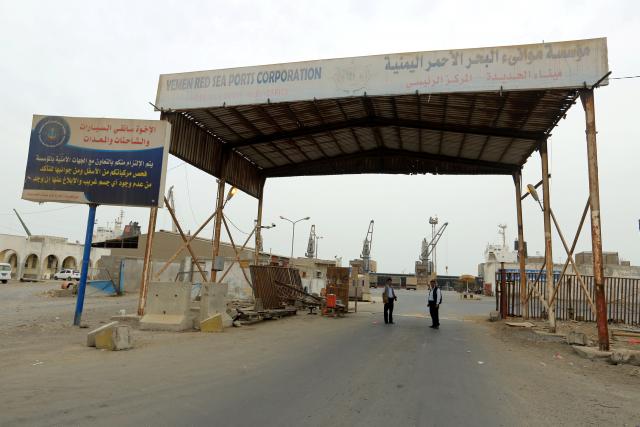The Western-backed military alliance resumed its offensive on the Red Sea city after the collapse of peace talks on Saturday which the United Nations had hoped would avert an assault on the main port city, a lifeline for millions of Yemenis, and start a process to end the three-year conflict.
The coalition of Sunni Muslim states led by Saudi Arabia and the United Arab Emirates (UAE) has repeatedly said that by taking control of Hodeidah they would be able to force the Iranian-aligned Houthi movement to the negotiating table by cutting off their main supply line.
“The main entrance in Hodeidah leading to Sanaa has been closed after forces backed by the UAE took control of the road,” a pro-coalition military source told Reuters.
Residents said the main eastern gate had been damaged in air strikes by coalition warplanes and that fighting was still ongoing on secondary streets off the main road.
There is another more circuitous road that can still enable supplies to move from Hodeidah on the western coast of Yemen to the capital in the north.
The United Nations fears an attack on Hodeidah, the entry point for the bulk of Yemen’s commercial imports and aid supplies, could trigger a famine in the impoverished state where an estimated 8.4 million people are facing starvation.
The Western-backed alliance intervened in Yemen’s war in2015 to restore the internationally recognized government of Abd-Rabbu Mansour Hadi. Coalition forces retook much of the south before the war, widely seen as a proxy conflict betweenSaudi Arabia and Iran, bogged down.
An attempt to hold peace talks in Geneva was abandoned on Saturday when the Houthi delegation failed to show up.
Houthi leader Abdul Malik al-Houthi accused the coalition of blocking his movement’s team from traveling to the peace talks. The foreign minister of Hadi’s government, Khaled al-Yamani, accused the Houthis of “trying to sabotage the negotiations”.
Reuters
More about: Yemen
















































